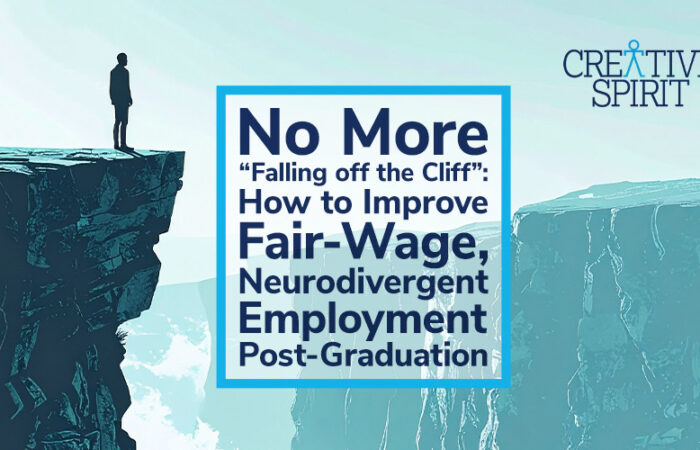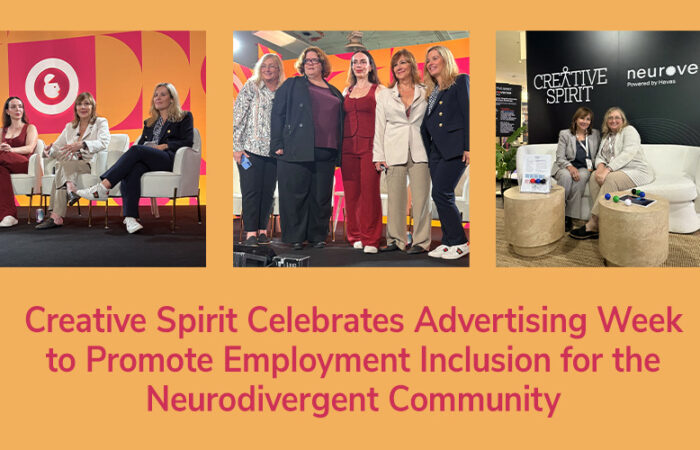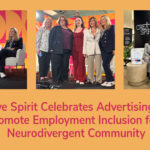By: Menachem Rephun, Communications Manager, Creative Spirit
For over 70 years, Mental Health Awareness Month (MHAM) has been celebrated annually in the U.S. to promote the importance of mental health and recovery from mental illness. MHAM is especially important for the roughly 67 million Americans who are neurodivergent (15 – 20% of the U.S. population). This is especially true with regard to employment, where mental health challenges and burnout often stem from anxiety about disclosure and pressure to conform with neurotypical expectations (For reference, see our article on neurodiverse burnout in the workplace).
As the National Health Service of Dorset explains, “Being neurodivergent in a neurotypical world can lead to challenges that may increase the risk of stress, anxiety or depression, and research indicates that neurodivergent people are more likely to experience mental health issues than neurotypical people.” They add that some of the factors linking neurodiversity to mental health include differences in how neurodivergent people interact with the world and experience particular situations; negative attitudes and a lack of understanding from others, which can lead to loneliness and isolation; and differences in understanding relationships and social situations. Recognizing these factors, as well as the relationship between mental health and neurodiversity, is crucial for hiring managers seeking to include neurodiverse employees in the workforce and for neurodiverse professionals looking to grow and succeed in their careers.
Appreciating The Individuality of Neurodiverse Individuals
MHAM should encourage distinguishing between the mental health needs of neurodivergent and neurotypical people, rather than simply blurring them together. It should also emphasize the fact that neurodivergent individuals all have unique identities and perspectives, contrary to the misconception that all people with a particular condition are the same. The value of acknowledging identity was shown in a 2024 research study published by Frontiers in Psychology, which found that doing so plays a key role in positive outcomes in mental health treatment for neurodiverse patients. As the study’s authors write, “The act of validating symptoms and experiences, allowing accommodations when requested, and exploring identity formation regardless of diagnosis, allowed all clients who identified as neurodivergent to benefit from treatment”. Mental Health Awareness Month also presents an opportunity to emphasize the social model of disability, which views disability as a social construct rather than a medical condition, in contrast to the medical model, which forces people with disabilities to adapt to a society not designed for their needs. As Dr. Amy Marschall writes in an essay for Psychology Today, “Neurodivergence and neurodivergent individuals have historically been seen as a problem in need of fixing, with the “solution” usually being conformity to neurotypical mannerisms and behaviors.” Marschall adds that in recent years, “many neurodivergent communities have pushed to reconceptualize neurodiversity as a natural part of human diversity. We provide support but do not see neurotypical-ness as a cure or end goal.” For Mental Health Awareness Month, this is a vital message to amplify: neurodivergent individuals should be fully included, rather than forced to adapt to a society not built with them in mind.
Mental Health and Post-Traumatic Growth
Mental Health Awareness Month is also an opportunity to highlight aspects of mental health that tend to be less familiar and focused on by the general public. One of those areas is the concept of “post-traumatic growth”. Essentially, this refers to positive psychological change that can occur after experiencing a traumatic event, a healing process driven by empathy and support. As Creative Spirit co-founder Laurel Rossi writes in her essay “The Unintended Consequences of Unkindness”, “The emotional and psychological consequences of sustained verbal cruelty — especially during childhood or adolescence — are not just anecdotal. They are well-documented in medical literature.” At the same time, “ a fortunate few — under the right conditions — may experience post-traumatic growth. These are the individuals who, against the odds, find meaning in their suffering and emerge with greater empathy, deeper relationships, and a renewed sense of purpose. But this kind of growth is rare — and never guaranteed.” She adds that post-traumatic growth can occur by treating victims of trauma with compassion and understanding. The medical tech company BrainsWay writes that some of the areas positively affected by post-traumatic growth include appreciation of one’s life, their relationship to others, personal strength, the development of new possibilities, and spiritual change.
For this year’s Mental Health Awareness Month, the Youth Advisory Board of the National Resource Center on Domestic Violence (NRCDV) developed a campaign to engage young people between the ages of 16-30 in conversations about growth after trauma. “Through conversation, I began to understand that this topic is about empowerment,” Youth Advisory Board Member Xaimara Marquez writes. “I also learned about mental health issues and trauma experiences that often go unspoken and ignored. For example, the pandemic caused significant anxiety and fear for many when it came to having common in-person social interactions. This was an experience of collective trauma.” As we celebrate the impactful strides in raising awareness of mental health, Mental Health Awareness Month should also go further in including the neurodivergent community in these conversations. Some advocates have pointed out that Mental Health Awareness Month campaigns, webinars, and other events, while well-intentioned, still fail to include people who are neurodivergent. As neurodiverse employment advocate Anita Foldvari writes, designing these efforts around neurotypical norms “overlook[s] the reality of ADHD, autism, and other neurodivergent experiences. Instead of offering real support, they often reinforce systems that leave neurodivergent folks feeling more excluded than empowered.” Foldvari points out that many workplaces still fail to adequately support mental health for neurodivergent employees, with rigid schedules, open-plan offices, and high-stimulation environments all being difficult, distracting, and counterproductive for neurodivergent employees, particularly those with ADHD and Autism Spectrum Disorder ASD). “When neurodivergent employees are forced to adapt to environments that don’t support their cognitive and sensory needs, their mental health suffers,” she writes. “Without structural changes, workplaces will continue to be the silent trigger behind a lot of mental health decline, especially for those already navigating a complex set of internal and external challenges.” Foldvari emphasizes that true inclusion and accessibility depends on action, rather than simply awareness, and what’s more, “awareness without action can be deeply harmful.” Foldvari critiques Mental Health Awareness Month for being, in her words, “heavy on slogans but light on solutions”.
What are those solutions? One answer involves training line managers on the mental health needs of neurodivergent employees and how to respond appropriately when those employees need to discuss their concerns. “Without education about ADHD, mental health, or sensory and communication needs, managers may inadvertently shut down or dismiss requests for support,” Foldvari writes. “This can lead to misunderstandings, stigma, or worse: employees choosing not to disclose their condition and continue to suffer without support”. She also recommends that business leaders normalize reasonable accommodations for mental health, making feedback from neurodivergent team members part of their inclusion model; and including access to mental health support part of onboarding materials, internal portals, and every HR meeting. “Supporting mental health at work isn’t about offering blanket fixes or feel-good slogans,” Foldvari notes. “Instead, it’s about redesigning systems to meet real, diverse needs. The goal isn’t to ‘fix’ neurodivergent employees. It’s to dismantle the structural barriers that make work harder, more exhausting, and often unsustainable.” Olga Zilberberg,
A New Approach for MHAM
By promoting practical, concrete actions, rather than just catchy slogans or awareness campaigns, Mental Health Awareness can genuinely change neurodiverse employment for millions of people. It can also create a foundation for how employers approach neurodiversity, making inclusion the status quo, rather than an exception. “Neurodivergent mental health support shouldn’t hinge on who self-advocates the best, who masks the quietest, or who’s already in crisis,” Foldvari writes. “It should be embedded from the start as a standard, not just brought out when someone makes a special request for it.” With Mental Health Awareness Month having been celebrated for over 70 years, the time is long overdue for neurodiversity to be prioritized as part of the mental health conversation. By becoming more understanding and accommodating, businesses can improve the mental health of employees who are neurodivergent. In turn, this will drive growth and productivity, helping all neurodiverse employees to function at their best.
Sources
BrainsWay. Mental Health Education: Post Traumatic Growth. https://www.brainsway.com/knowledge-center/post-traumatic-growth/
Foldvari, A. (2025). 7 Reasons Mental Health Awareness Month Still Fails Neurodivergent Employees (And What Workplaces Should Do Instead). Anita’s Neurodiversity Consultancy. https://www.anitasndconsultancy.com/blog/mental-health-awareness-month-neurodivergent-support
NHS Dorset. Neurodiversity and Mental Health. https://nhsdorset.nhs.uk/neurodiversity/explore/mentalhealth/
Marquez, X. (2025). #TriumphOverTrauma for Mental Health Awareness Month 2025. National Resource Center on Domestic Violence. https://www.dvawareness.org/MentalHealthAwarenessMonth2025
Marschall, A. (2025). The Power of Neurodiversity-Affirming Mental Healthcare. Psychology Today. https://www.psychologytoday.com/us/blog/neurodiversity-affirming-therapy/202503/the-power-of-neurodiversity-affirming-mental
Rossi, L (2025). The Unintended Consequences of Unkindness. Creative Spirit US. https://www.creativespirit-us.org/the-unintended-consequences-of-unkindness/







